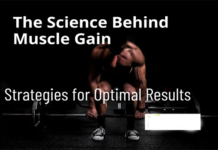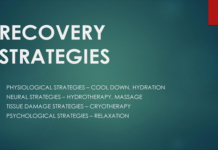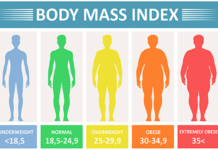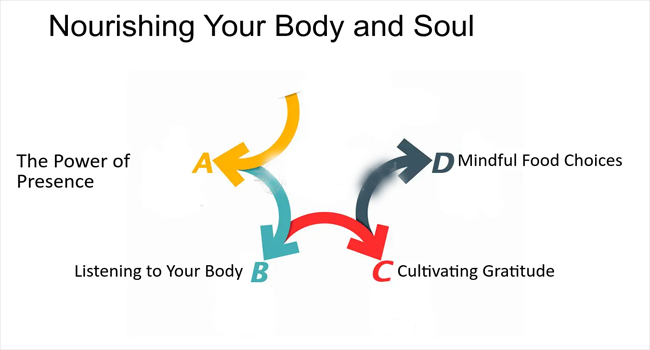Introduction:
In the hustle and bustle of contemporary life, the pursuit of well-being has emerged as an accepted aim for plenty. Yet, proper health extends beyond physical health; it encompasses the harmonious integration of mind, body, and soul. This holistic technique to wellbeing recognizes the interconnectedness of these aspects and emphasizes nurturing every element to attain a balanced and satisfying existence. In this exploration, we delve into the essence of holistic wellness, uncovering its concepts, benefits, and realistic strategies for nourishing the thoughts, body, and soul.
Understanding Holistic Wellness:
Holistic well-being is a multifaceted idea that transcends the traditional definition of fitness. It encompasses no longer the most effective absence of disease but the advertising of universal wellbeing in all elements of one’s being. At its core, holistic health recognizes that the mind, body, and soul are interconnected and profoundly affect every difference. Thus, achieving proper health includes nurturing and harmonizing these interconnected elements.
Principles of Holistic Wellness:
Wholeness: Holistic wellbeing acknowledges the interconnectedness of all elements of human life. It perceives individuals as holistic beings, where physical, intellectual, emotional, and religious dimensions are interdependent.
Balance: Achieving wellbeing involves maintaining equilibrium among diverse dimensions of existence. This stability encompasses a healthy way of life practices, emotional balance, pleasing relationships, and spiritual connection.
Prevention: Holistic wellbeing emphasizes preventive measures to hold health and wellbeing proactively. It encourages wholesome ingesting, everyday exercise, pressure control, and mindfulness to prevent infection and promote vitality.
Self-attention: Central to holistic wellness is self-recognition – the capability to understand one’s mind, emotions, physical sensations, and non-secular desires. Through self-recognition, people can identify areas of imbalance and take proactive steps closer to healing.
Nourishing the Mind:
The mind is crucial in holistic wellbeing, influencing perceptions, feelings, and behaviours. Intellectual wellbeing involves cultivating tremendous thought patterns, dealing with strain, and fostering emotional resilience. Here are some strategies to nourish the thoughts:
Mindfulness and Meditation: Practicing mindfulness and meditation cultivates present-moment recognition, reduces strain, and complements mental readability. Incorporating accessible mindfulness sports into day-by-day exercises can sell mental wellbeing.
Cognitive Wellness: Engaging in activities stimulating cognitive features, including studying, puzzles, or learning new abilities, supports brain health and cognitive vitality. Continuous learning and mentally demanding situations contribute to general mental well-being.
Emotional Intelligence: Developing emotional intelligence involves spotting and managing emotions efficaciously. Cultivating self-consciousness, empathy, and healthy coping mechanisms complements emotional resilience and promotes mental wellbeing.
Stress Management: Effective pressure control strategies, deep breathing, physical activities, modern muscle relaxation, and accomplishments help alleviate strain and sell intellectual rest. Prioritizing self-care and setting obstacles are essential for keeping mental stability.
Nourishing the Body:
The body is the physical vessel through which we enjoy lifestyles; its well-being is fundamental to holistic wellness. Nourishing the frame includes adopting wholesome lifestyle conduct, nurturing bodily fitness, and honouring the frame’s desires. Here are some approaches to sustain the frame:
Nutritious Diet: A balanced, nutrient-wealthy food plan is crucial for optimal physical health. Emphasizing entire meals, results, veggies, lean proteins, and healthful fat presents vital nutrients and helps ordinary well-being. Hydration is likewise crucial for keeping bodily capabilities.
Regular Exercise: Physical interest is vital for keeping cardiovascular health, muscle energy, flexibility, and usual vitality. Incorporating regular exercise into daily workouts and on-foot, strolling, yoga, or strength schooling promotes physical well-being and reduces the hazard of chronic sicknesses.
Restorative Sleep: Quality sleep is crucial for bodily and mental restoration. Prioritizing sleep hygiene practices, consisting of retaining a constant sleep timetable, developing conducive sleep surroundings, and practising relaxation strategies, supports restorative sleep patterns.
Holistic Therapies: Exploring holistic healing procedures, which include massage, acupuncture, chiropractic care, and aromatherapy, can complement traditional healthcare tactics and promote holistic wellbeing. These healing procedures deal with bodily illnesses while nurturing the frame’s innate restoration potential.
Nourishing the Soul:
The soul represents the essence of our being, encompassing our deepest values, passions, and experience of purpose. Nurturing the soul includes connecting with the inner self, cultivating meaningful relationships, and seeking non-secular achievement. Here are ways to nourish the soul:
Self-Reflection and Inner Growth: Engaging in self-reflection practices, journaling, or introspective activities fosters self-awareness and private increase. Exploring values, ideals, and aspirations nurtures the soul’s adventure and fosters an experience of fulfilment.
Meaningful Connections: Cultivating significant relationships with cherished ones, pals, and network individuals enriches the soul and gives a feeling of belonging and aid. Investing effort and time in nurturing relationships fosters emotional connections and enhances average wellbeing.
Nature and Creativity: Connecting with nature and being attracted to creative interests nourishes the soul and stimulates internal power. Spending time outdoors, appreciating herbal beauty, or expressing creativity through art, tune, or writing fosters a more profound sense of connection and proposal.
Spiritual Practices: Exploring spiritual practices with prayer, meditation, or contemplative rituals deepens one’s connection to the divine or better recognition. These practices domesticate internal peace, information, and religious fulfilment, contributing to holistic well-being.
Gratitude and Mindfulness: Cultivating an exercise of gratitude and mindfulness fosters soulful nourishment by bringing consciousness to the existing second and appreciating lifestyles’s blessings. Taking time each day to renowned and express gratitude for the simple joys and reports enriches the soul and cultivates a pleasant outlook on existence.
Compassionate Service: Engaging in acts of kindness and compassionate service closer to others fosters a sense of motive and achievement. Volunteering, presenting a guide to those in need, or extending a listening ear promotes a deeper connection to humanity. It contributes to the well-being of both the giver and the receiver.
Intentional Living: Embracing intentional living entails aligning movements and choices with middle values and aspirations. By dwelling authentically and intentionally, individuals honour their soul’s calling and create a lifestyle that reflects their true essence, fostering a profound experience of achievement and cause.
Cultivating Resilience: Building resilience entails navigating life’s challenges with electricity, adaptability, and internal fortitude. Embracing setbacks as opportunities for increase, cultivating optimism, and drawing upon inner assets empower people to conquer and thrive in adversity.
Integration and Continual Growth:
Holistic wellbeing isn’t a vacation spot but an adventure of persistent boom, self-discovery, and integration. It calls for an ongoing commitment to nurturing the thoughts, body, and soul, adapting to existence’s ever-converting instances, and embracing the interconnectedness of our being. By incorporating holistic ideas into daily life and fostering a holistic mindset, people can enjoy profound transformation and lead lives of greater meaning, power, and well-being.
Conclusion:
Holistic wellbeing represents a comprehensive approach to fitness and wellbeing, encompassing the integration of thoughts, frames, and soul. By nurturing each issue of our being – intellectual, physical, and spiritual – we will gain a harmonious balance and lead enjoyable lives. Embracing holistic wellbeing entails adopting wholesome lifestyle behaviour, cultivating self-recognition, fostering meaningful connections, and exploring practices that nurture the mind, frame, and soul. As we adventure towards holistic wellbeing, we must embrace the interconnectedness of our being and try to live authentically, vibrantly, and in alignment with our actual selves.






















